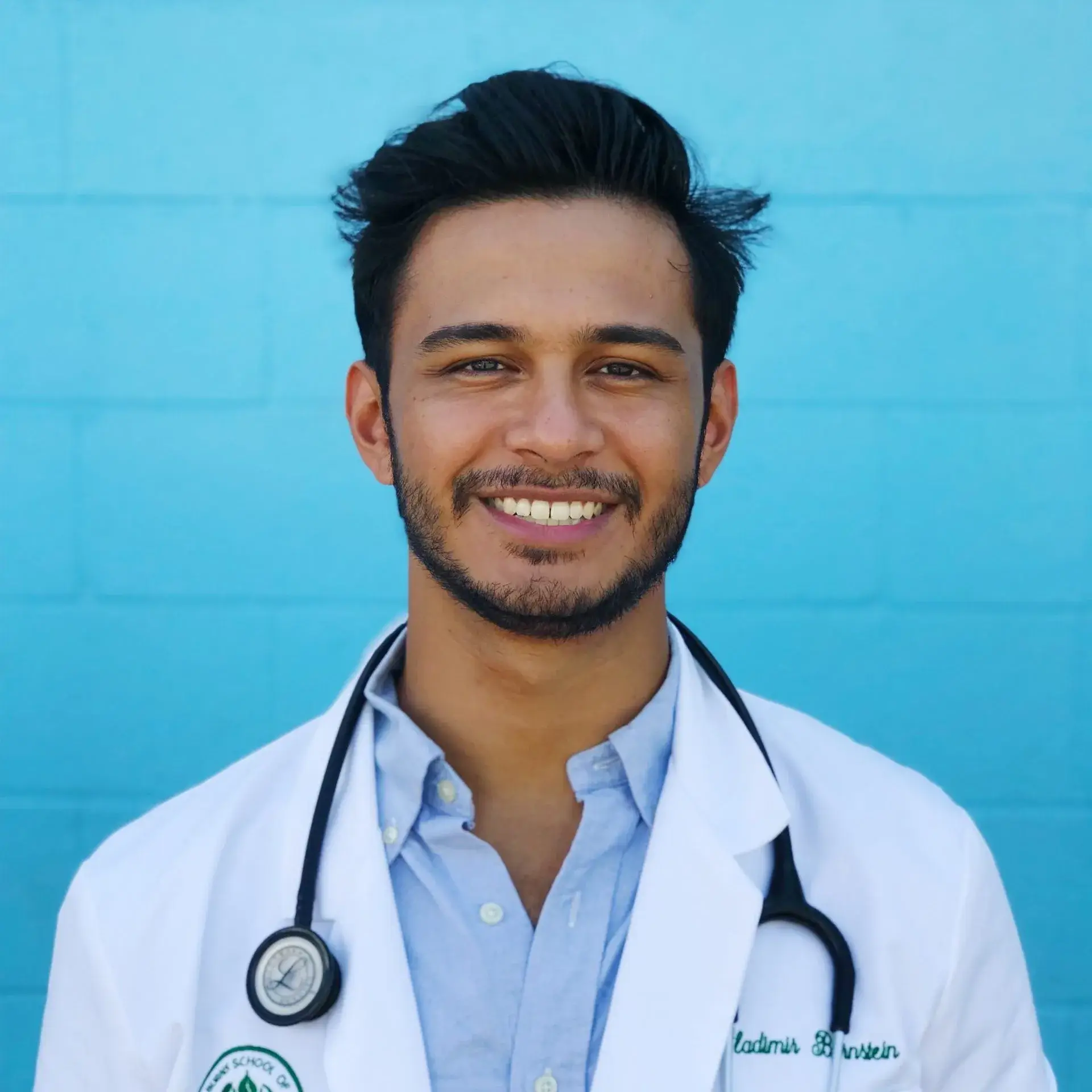
Dr. Vladimir Bernstein
Medical personnel, researchers and first responders are sacrificing their health and wellbeing every day for the safety of our community. And while their bravery rarely goes unnoticed, what the public may not see are the personal lives behind the heroes, the talents and passions that fuel their lives beyond the bounds of their professions. Talents and passions like music. Learn more about these community connections in our Summer 2020 Newsletter
As a recent graduate of the John A. Burns School of Medicine and soon-to-be emergency medicine resident-physician at Cook County Health and Hospital Systems in Chicago, Vladimir Bernstein often turns to music as a source of quiet comfort, beauty, and recharge. The hardworking MD is also an incredibly talented musician, with artistic roots he traces back to the age of six before continuing his journey with HYS.
“My musical education began with piano lessons at age six, which for some strange reason I had begged my parents for even though neither of them are musicians,” he recalled. “I decided to play the bass in middle school, and because I started to progress quite quickly, my parents decided to arrange private lessons with Michael Gorman, former Assistant Principal Bassist of the Honolulu Symphony. In my sophomore year, I auditioned for YSI and served as the principal bassist until I graduated from high school.”
Bernstein’s artistic accomplishments are indeed impressive. He obtained a Masters of Music degree in Double Bass Performance from The Julliard School of Music, where he studied under former Principal Bassist of the New York Philharmonic Eugene Levinson. So how does one transition from the fields of music to medicine? “I actually think there’s a strong connection between music and medicine,” he said. “I’ve found the practices of music and medicine require emotional sensitivity and the ability to listen and communicate beyond words. A competent musician can play the notes on a page, just as a competent doctor can algorithmically address the results of a lab test. Great musicians and doctors, however, are able to connect to the audience, the patient, and their colleagues on a humanistic level, which means knowing how to demonstrate leadership, humility, respect, and compassion.”
“Great musicians and doctors are able to connect to the audience, the patient, and their colleagues on a humanistic level, which means knowing how to demonstrate leadership, humility, respect, and compassion.”
Sorry, no posts matched your criteria.
